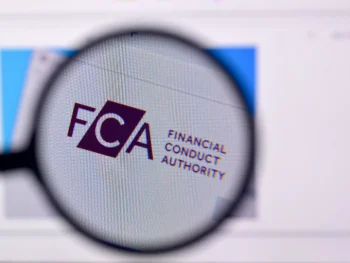Darren Bagnall from Flat Living Insurance looks at the recent changes to leasehold legislation.
With recent legislation changes announced by the Government, and rebooted Financial Conduct Authority guidelines coming into play, it’s all change for 2024.
From the new year, leaseholders will be better protected, better informed, and better enabled to challenge poor practise.
Here we’ll be explaining what the changes mean for leaseholders with a focus on the legalities for the insurance sector, and the industry’s new responsibilities in supporting all stakeholders in the process of purchasing a policy.
Legislation Changes
Following June’s Leasehold Reform (Ground Rent) Act 2022 (which effectively abolished ground rents and reduced fees for lease extensions down to a peppercorn), the Government have now introduced the Leasehold and Freehold Reform Bill to parliament.
Once it’s been debated, approved and given royal accent, this too will pass into law, becoming and Act. Current opinion is that the bill will pass without issue, but this is unlikely to happen before the summer of 2024. Full guidance on the Bill can be found on the Government website, but the proposed changes include the following:
- Lease extensions will be made simpler and cheaper, with ground rent reduced to a peppercorn, marriage value abolished, and the standard term extended to 990 years. Leaseholders will not need to have owned their lease for a minimum of 2 years before being able to extend the lease either.
- Leaseholders will no longer be responsible for their freeholder’s legal costs when taking over the management of their building.
- Transparency will be prioritised, with service charge statements provided in a standardised format that can be more easily understood and challenged.
- Freeholders will now have to belong to a redress scheme to enable leaseholders to challenge their decisions. Freeholders will no longer be able to assume that leaseholders will cover any legal costs incurred during any challenges.
- Insurance commissions will be banned and replaced with transparent administration fees.
The Bill goes hand in hand with the Financial Conduct Authority’s September 23 update which also supports clarity and good practise in the insurance sector. Their new rules come into play from 31st December 23.
Insurance Changes for 2024
The Financial Conduct Authority’s regulation update, released in September 2023, puts leaseholders in line with freeholders and managing agents as stakeholders in the building insurance market.
From 2024, insurers must consider leaseholders in their policy designs and throughout their processes to ensure fair value and consideration to those footing the bill. They must also provide a disclosure document that should then be passed onto leaseholders by whoever has arranged the policy.
“From the new year, insurance firms will be forced to act in leaseholders’ best interests, treat leaseholders as customers when designing products and will be banned from recommending an insurance policy based on commission or remuneration levels.
Insurers will also be required to ensure that their insurance policies provide fair value to leaseholders and provide important information about their policy and its pricing, including the detail of any commission paid for leaseholders.”
FCA
Broker Commission Practises
During their 2022 review into the market, the FCA found that almost a third of the cost of insurance premiums could be made up of commission and fees (inflated by unscrupulous freeholders agreeing to higher premiums in return for a share of the brokers’ commissions).
The new year also heralds a huge change in remuneration practises for the sector. Commission payments to third parties will no longer be allowed in an effort to ensure that the policy buyer keeps leaseholders needs in mind, rather than being swayed by any financial gain that may be on offer.
“Following a review into broker remuneration practices, the FCA expects brokers to immediately stop paying commissions to third parties (including property managing agents and freeholders) where they do not have appropriate justification and evidence for doing so in line with our rules on fair value.”
Until now, the practise of sharing commission funds with freeholders and/or managing agents to encourage the take up of needlessly expensive policies was unfortunately rife. These costs were also easily hidden in confusing service charge demands. The banning of these commissions alongside the standardisation of service charge demands should put an end to this expensive issue for leaseholders.
The Disclosure Document
The rules also state that, from 31st December 2023, firms must provide detailed information re the product and their services once a policy is purchased. It must be compiled and provided to the policy-buyer, with clear instructions that it must also be passed on to all leaseholders. If it’s not passed along as instructed, leaseholders are able to contact the firm to request their assistance.
The details must include:
- A summary of the features of the policy, including main benefits, coverage and exclusions of the policy, duration and insured sum.
- The policy premium- where the policy covers a portfolio of buildings, firms must disclose the premium at building or dwelling level.
- The remuneration which any authorised intermediaries received for arranging the insurance, as well as remuneration they pay to other parties (including unregulated Property Managing Agents and freeholders).
- Information about potential conflicts of interests, such as ownership links between the intermediary and the insurer, and about the insurers with whom the intermediary may place the policy.
- The number of alternative quotes they have obtained (with further details of these to be provided on request) and a brief explanation of why they have proposed or recommended that the policy is in the interests of both the freeholder and leaseholders.
Responsibility for producing the information will be split between the insurer and intermediary, with the insurer responsible for providing the policy summary and pricing information, and the intermediary responsible for the remainder. The information must be disclosed “as soon as reasonably practicable after the conclusion of the contract”.











 What is Fair Value and What Does it Mean for You From 31/12?
What is Fair Value and What Does it Mean for You From 31/12?
Leave a Reply